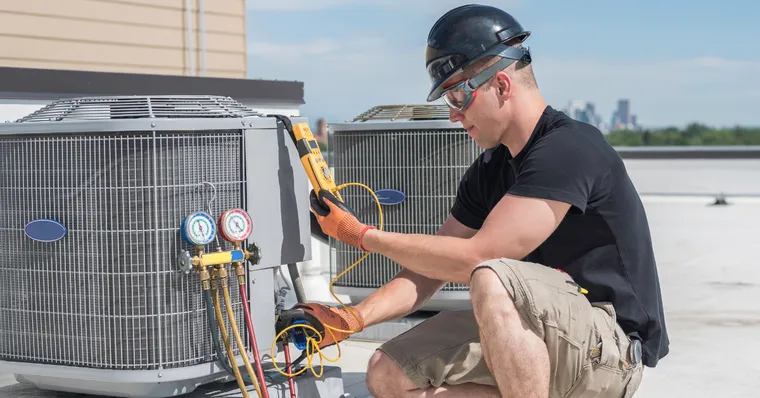Expert HVAC installation guarantees efficiency and longevity for your home's cooling and heating systems. It's an investment that brings comfort and peace of mind.
Key Components of a Quality HVAC System
Understanding the key components of a high-quality HVAC system is essential for ensuring your home remains comfortable throughout the year. Central to any HVAC system are the furnace and the air conditioning unit. The furnace, responsible for heating, comes in various efficiency levels and types, such as gas, electric, or oil. Similarly, the air conditioning system, which cools your home, typically consists of an evaporator coil, a condenser unit, and a compressor. High-quality systems often incorporate advanced technologies such as variable speed motors, which offer better temperature control, reduce energy consumption, and enhance overall comfort.
Beyond heating and cooling units, ductwork plays a critical role. Quality duct installation ensures efficient air distribution throughout your home, reducing energy wastage and maintaining balanced airflow. Properly sealed and insulated ducts prevent leaks and energy loss, ensuring that conditioned air reaches the intended spaces. Thermostats, especially programmable or smart versions, also contribute to a robust HVAC system by providing precise control over the indoor climate and optimizing energy usage. Additionally, air filtration systems and humidifiers can be integrated to improve indoor air quality, making your living environment healthier and more comfortable. Investing in these key components not only boosts performance but also enhances the longevity and efficiency of your HVAC system.

Benefits of Professional HVAC Installation
Enlisting the expertise of professional HVAC installers ensures that your system is set up with precision and care. Seasoned technicians come equipped with the knowledge to manage complex installations, leaving no room for errors that could affect performance. They are adept at handling a broad range of equipment and adhering to manufacturer guidelines, which ultimately extends the lifespan of your system. With precise calibration and thorough testing, your HVAC system will operate efficiently from day one, providing you with peace of mind and consistent comfort.
Moreover, professional installation services often include valuable warranties and ongoing support that you wouldn't get with a DIY approach. These warranties secure your investment, covering repair costs that might arise unexpectedly. Furthermore, professional installers can provide tailored advice on maintaining your system, helping you avoid common pitfalls and optimize performance. Their dedication to ensuring customer satisfaction goes beyond the initial setup, fostering a reliable and lasting relationship that keeps your HVAC system running smoothly for years to come.
Signs You Need a New HVAC System
Old age is one of the most apparent signs that you might need a new HVAC system. Most systems are designed to last between 10 to 15 years. If your unit is approaching or has exceeded this age, it’s likely functioning less efficiently and costing you more in energy bills. Aging equipment is prone to breakdowns and may necessitate frequent repairs, making a new system a more economical choice in the long run. Additionally, older systems often lack the technological advancements of newer models, which can offer significant improvements in energy efficiency, air quality, and overall performance.
Another indicator is inconsistent temperatures throughout your home. If certain rooms are too hot or too cold, it may be a sign that your current HVAC system is struggling to maintain a consistent environment. This could be due to various issues, including outdated technology, improper sizing, or failing components. Moreover, excessive noise, frequent cycling on and off, or visible signs of wear and tear are further reasons to consider upgrading. Addressing these issues with a new HVAC system can dramatically improve your home's comfort and energy efficiency, making it a worthy investment.
